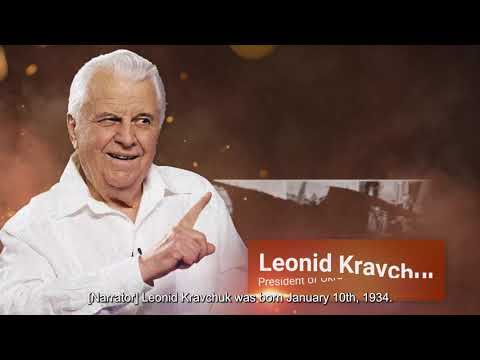Ukraine is a country that was unknown to most citizens of the United States,
Tag: USA
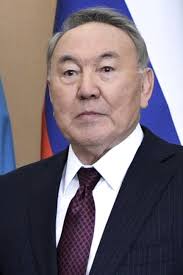
Kazakhstan’s first president, through the skillful use of diplomatic levers, continues to bolster his
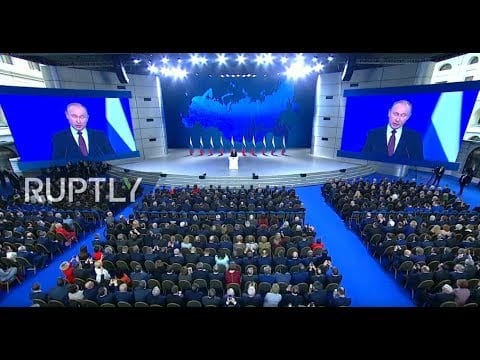
On February 20, during his message to the Federal Assembly, Russian president Vladimir Putin devoted most of the time to internal state problems, however the international context was not disregarded. As for the internal Russian developments, we won’t deepen into the words of the Russian leader. After all, that is Russians themselves, who should deal with it. We may only notice that, notwithstanding Putin mentioned deteriorations by some indices, his report based generally on quite optimistic statistical figures. Let’s set aside the fact that the parallels for some reason were drawn with early 2000s, instead of the third presidential term (2012-2018) when oil was more expensive and sanctions have not exerted the real effect yet. Well, that is business of Russians themselves and their elite.
We are much more interested in a foreign policy part of Russian president’s message. The first to mention is a big attention to the new Russian arms. It seems that specification of new “Kinzhals” and “Neptunes”, “Zircons” and “Peresvets” sparked particular interest of the Russian leader, and was pronounced with special aspiration. However, the main message of the speech was that it is the US and not Russia who used to infringe the INF Treaty, and Russian armament is response to aggressive actions of Americans. That was covered with the most peaceful statements:
“We are not interested in confrontation and we do not mean it, especially with such global power as the United States of America… We realise that we deal with active, very talented people, however a lot of those from ruling class are excessively keen on the idea of their uniqueness and superiority over the rest of the world”.
At the same time the Russian leader snatched an opportunity to hint that rockets would be directed at the decision-making centres, that is Washington and Brussels. Actually, Putin resorted for the first time to threats against the USA. He did not lay aside the European countries in his threats as well. First of all, he meant Poland and Romania where elements of missile defence system are placed and where the US rockets may appear.
“I will speak frankly and overtly to make everything clear: Russia will be forced to create and place such types of arms which will be able to reach not only the territories which pose the threat to us, but also those which make the relevant decisions. We are going to implement it as soon as threats become real”.
Well, such rhetoric has nothing in common with the olive branch of peace. However, we should be aware that, regardless of all threats to the USA and NATO, primarily they are aimed at internal audience. Actually, most of the Russian high rank officials who listened to President’s speech and fought against sleep possess the real estate and have their families living in these states.
In his statements, the Russian leader tried to remind once again the ordinary Russians that Russia is surrounded by enemies. However, Russia is able to react and for this purpose Russians should line up for the strong leader. Well, such anti-Western rhetoric becomes less effective day by day. This message was meant by the Kremlin political strategists to raise Putin’s rating (according to the Russian sociologists, current level of credibility to the President is about 33,4%, being the lowest since 2006). Sure enough, sober-minded Russian would have to think that spending money for building school infrastructure is much more efficient than spending them for rockets. Actually, the President himself found unexpectedly at the 20th year of his ruling that 200.000 students study in unheated premises without water supply and canalization. That is in energy superpower, by the way! Still crisis phenomena in the Russian economy increase; therefore, there is no question of improvement of Russians’ welfare.
To reiterate, the probability of the Russian aggression against NATO member states is extremely low. Well, it is not impossible, but insignificant. Besides it, the most part of samples of the latest Russian arms mentioned by Putin are still at a development stage. That means the Russian government shall be realistic in such estimates of possible outcomes of confrontation with the USA, therefore such bravado seems to be rather information noise and blowing of cheeks.
Further self-isolation of Russia from the world is probable. New “Iron Curtain” gradually falls on the state. Currently Russians consider the possibility of creation of their own, autonomous Internet. Access to information from independent sources shall be blocked. Still these measures are inefficient; however, that is only the beginning. Further, the situation will only be aggravated: Russians will live gradually worse, yet they will not know that the other life is possible. Well, they will have powerful rockets. We can make already some parallels. One such state exists on our planet: it occupies a northern part of the Korean peninsula…
And the last but not least. President Putin in his speech told a witty joke as it appears to him about the US and NATO allies who are “oinking along with”. Well, it seems that it would be Russians themselves who will oink, since they are purposefully turned into a herd of pigs.

The businessman Leonard Blavatnik, who has gained the main part of his fortune thanks to his partnership with Victor Vekselberg and Oleg Deripaska, saves his face in the USA by the increasing investments in philanthropic activity. Yesterday in New York, the dinner organized by the expert center Hudson Institute was held. Blavatnik Family Foundation became the sponsor of the event. The dinner was arranged in honor of the speaker of the House of Representatives Paul Ryan and the Permanent Representative of the USA to the UN Nickey Haley.
Blavatnik is the U.S. citizen who grew up in the Soviet Union. His partners — Victor Vekselberg and Oleg Deripaska are under US sanctions, Blavatnik’s activity also caused questions by the Special Prosecutor Robert Mueller. In recent years, he has sharply increased the political donations in the USA. Since 2015, he has donated some $7.6 million to republicans, one million to Trump’s inaugural committee and half a million to democrats.
He donated $50 000 for Hudson Institute’s event, only three trustees of institute and the billionaire Paul Singer brought some more. This dinner is a good example of how allegedly charity provides political access.
Blavatnik’s activity is concentrated not only in the USA. The other day the SchoolsWeek.co.uk portal reported the Blavatnik Family Foundation had become the sponsor of New schools Network. NSN — a charitable organization registered in Great Britain, which purpose is the support of the groups creating free schools within sector of the state education of England.
As Ilya Zaslavsky, the former consultant of TNK-BP notes, “Underminers” has convincing proofs of that Blavatnik is in many respects connected with the corrupted security services of Russia and law enforcement agencies and personally got profit on their illegal actions. The best illustration for that is a transaction on sale of TNK-BP “Rosneft” as a result of which he received about 7 billion dollars against his share in 2013. Zaslavsky also specifies that Blavatnik’s firm Amediateka appears in “Panama documents” as having joint venture with business of the deputy minister of internal affairs Alexander Makhonov: in 2017, Makhonov left his post after his subordinate was suspected of corruption, but he continued to do the business, as earlier.

Recent midterm elections in US another time showed the continuing efforts of the third parties to affect the voting results using media platforms. Facebook stated it blocked 115 accounts for suspected “coordinated inauthentic behavior” linked to foreign groups attempting to interfere in Tuesday’s U.S. midterm elections, particularly 30 Facebook accounts and 85 Instagram accounts.
Twitter, meanwhile, has said it has identified more than 4,600 accounts and 10 million tweets, mostly affiliated with the Internet Research Agency, which was linked to foreign meddling in U.S. elections, including the presidential vote of 2016. The agency, a Russian troll farm, has been indicted by U.S. Special Counsel Robert Mueller for its actions during the 2016 vote.
The response of the Department of Homeland Security, Department of Justice, the Office of the Director of National Intelligence and the FBI was a joint statement declaring the law enforcement is working in “unprecedented ways” to combat foreign influence operations.
“Americans should be aware that foreign actors – and Russia in particular – continue to try to influence public sentiment and voter perceptions through actions intended to sow discord,” the statement said. “They can do this by spreading false information about political processes and candidates, lying about their own interference activities, disseminating propaganda on social media, and through other tactics.”
Facebook, Twitter and other companies have been fighting misinformation and election meddling on their services for the past two years . There are signs they’re making headway, although they’re still a very long way from winning the war.
According to data provided by researches who monitored 2018 US elections, while these measures made less effective specific sort of interference the Russians engaged in two years ago, they haven’t fully stopped Russian influence operations. It seems to a greater extent that they stimulated Russia to develop and shift to new tactics
According to Jonathon Morgan and Ryan Fox, who run a New Knowledge cybersecurity company, this year it was registered more overall activity in real time from continuing Russian online influence operations targeting the midterm elections than it was disclosed by social media platforms or detected by researchers during the same period before the election in 2016.
In the past month the researchers have collected more than 26 million social media posts concerning the 2018 midterms, particularly a large portion of all relevant content on Twitter as well as a smaller targeted sample of all relevant content on Facebook.
Analysis shows that more than 400 websites are likely to be Russian propaganda outlets aimed at American audiences. More than 100 of these websites were confirmed as under the direction of the Russian government or are thought to be Russian with a very high degree of confidence.
In the month of October alone, the company tracked 110,000 social media posts that referenced a United States midterm candidate, topic or hashtag and contained a link to one of these websites. More than 10,000 of these posts contained a link to one of the websites we have either confirmed as Russian-directed or believe to be Russian with a very high degree of confidence.
The top three websites linked to these social media posts are the site of RT, Russia’s state-financed international cable network (5,275 links); The Duran, a right-wing news and opinion site (1,328 links); and Sputnik, a news and commentary site run by the Russian government (1,148 links).
The company have also identified 1,451 social media posts aimed specifically at midterm voters from social media accounts assessed with high confidence as belonging directly to Russian influence operations. These posts are largely focused on the geopolitics of the Middle East, the Saudi-assassinated journalist Jamal Khashoggi and the Supreme Court confirmation hearings for Brett Kavanaugh.
The most-shared article of known Russian origin for October on Twitter was an article from The Duran purporting to show how groups financed by the billionaire Democratic fund-raiser George Soros “plotted with Google, Facebook, Twitter and other social media platforms to eliminate conservative ‘right wing propaganda.’”
The Russia-linked social media accounts were active during the Kavanaugh hearings, drawing attention to sexual and domestic abuse allegations against various 2018 Democratic candidates and potential 2020 Democratic presidential candidates. They have been amplifying anti-immigrant sentiment, including conspiracy theories about the caravan of migrants in Central America, and have promoted the idea that the mail-bomb campaign of the Trump supporter Cesar Sayoc Jr. was a Democratic plot.
Because of the numerous changes since 2016 in social media platforms and propaganda-detection practices, a straight “apple to apples” comparison of 2016 and the current election cycle is not possible. And no analysis of the social media landscape is ever complete because no one has access to all the data.
But any significant detectable quantity of Americans who are unwittingly sharing Russian propaganda on their social networks is cause for concern. And based on activity that the analysis attributes to Russian government efforts, we may estimate that at least hundreds of thousands, and perhaps even millions, of United States citizens have engaged with the content of Russian propaganda online.
The consensus among academic researchers and Russia experts in the intelligence community is that Russia does not take a timeout from information battles. It considers itself to be in a constant state of information warfare. Its online influence operations are inexpensive and effective, and afford Russia an asymmetric advantage given the freedoms of expression afforded to Western democracies.
We are heartened by the seriousness with which many social media platforms and government agencies are treating this situation. But while progress has been made since 2016, we must remain vigilant in the face of confirmed Russian efforts to undermine our democracy.
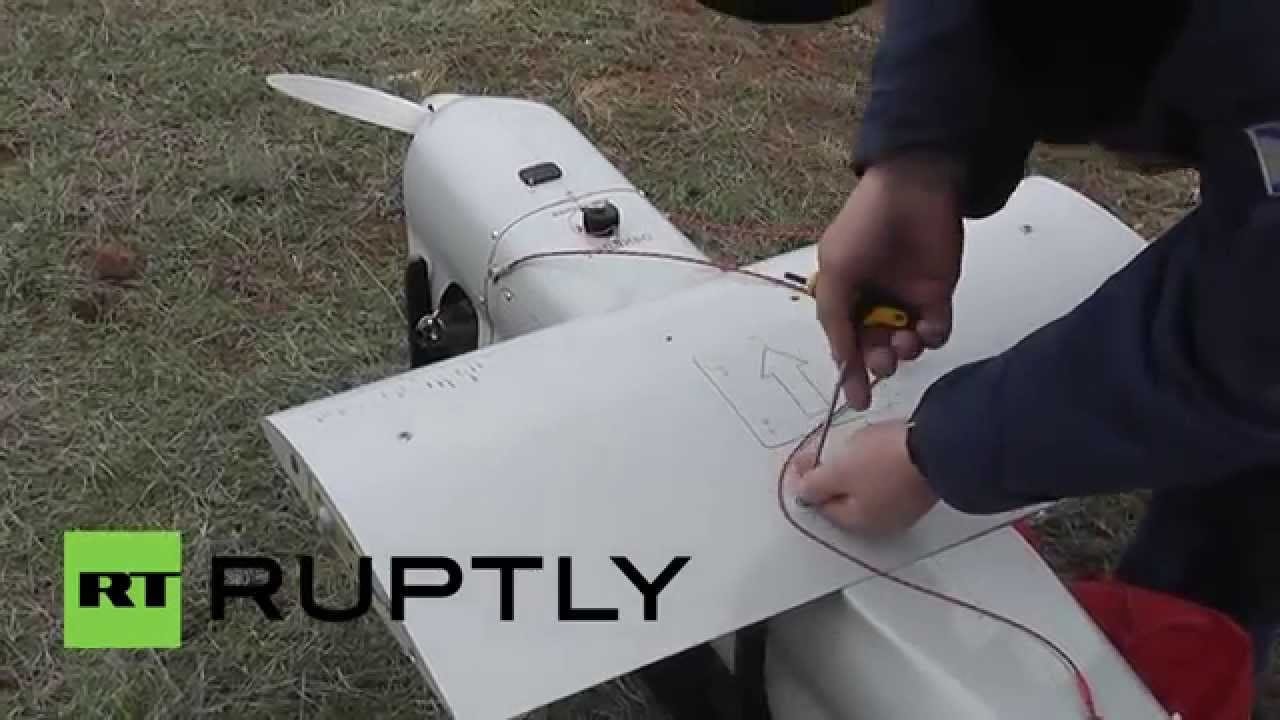
Aggressive policies towards neighboring countries, gross violations of international law and breaking up of the international security system have compelled the international community to impose political and economic sanctions against Russia. Military and technical cooperation have become the object of the severest restrictions.
US has taken the strong stand on the issue, and still keep adhering to the commitment of tightening the sanctions regime, especially in the issues of countering strengthening of the military capabilities of the Russian armed forces. However, despite of this, some US companies keep cooperating with the state which is widely thought as a political outlaw. Moreover, they help the Russian armed forces to develop the weapons used in military conflicts in the Ukrainian Donbass and against the civilian population in Syria. As current situation shows there is no guarantee that Russia will not use such weapons against other states.
Here are just a few examples of US-Russian military and technical cooperation. Since 2014, the US FLIR supplies thermal imagers to the Naval Forces of the Russian Federation. Russia equips anti-terror vessels under 03160 Raptor project (P-415 and P-425 ships are in Sevastopol in the annexed Crimea), special fast attack crafts BK-10, BK-16 and BK-18, as well as small missile cruisers (Storm and Okhotsk SMC) under 22800 project manufactured by Sevastopol “More” plant with US-produced thermal imagers.
In addition, study of the two Russian Orlan-10 UAVs (side numbers 10212 and 11057) shot down in the east of Ukraine in 2014 and 2017 showed that almost all electronics, motors and optics were of US Filtronetics, Texas Instruments, Linear, Pulse Electronics production. Also, the analysis of UAV production statistics in Russia indicates that their production is constantly increasing. Thus, in February 2014, the Ministry of Defense of the Russian Federation owned about 500 UAVs, about 650 UAVs were delivered to the armed forces of Russia by April 2015, and about 1000 units in November 2016. Significant growth of Orlan UAVs production in Russia from early 2014 (4 times) shows that the necessary foreign-manufactured spare parts have been acquired just during the military invasion in Ukraine, i.e. during the sanctions regime.
This means that contrary to the official Washington’s statements, US companies keep military and technical cooperation with Russia, disregarding the official stance of their country.

In November, 2018 the USA is going to hold elections to the lower chamber of the Congress which can essentially change political map in the country. For this reason in the run-up to election campaign the nuclear program of Democratic People’s Republic of Korea becomes not a simple question of strategic safety of the United States, but also a political card which both democrats and republicans will try to play on.
In fact the following situation is developing: two Congressmen – Josh Gottheimer and Francis Rooney – have introduced a bill to the lower chamber of the Congress “The North Korea Ballistic Missile Investigations Act”. It is a question of deliveries of rocket engines for the Democratic People’s Republic of Korea. In their bill the American congressmen refer to the report of an expert from the International institute of strategic researches (IISS), Michael Elleman, on which base on July, 14th The New York Times published a material that rocket engines could be supplied to Pyongyang “from a foreign source, possibly, from Ukraine”.
Russian political engineers have actively grasped this topic. In Moscow they assumed, that Pyongyang’s rocket & nuclear program actively developing and worrying Washington could help with attempts of the international isolation of Ukraine. The stake has been made that the information on sale of rocket components to North Korean regime at least will push the USA to refuse to support Kiev and as a maximum to impose sanctions against. Moscow and Kiev hereby would be in equal conditions, to be exact, one to one.
However Kremlin has not considered some important details. First, Moscow leaders did not expect the Ukrainian party could so quickly present proofs of its non-implication. And even on the contrary, Ukraine proved Russia’s involvement in successes of the North Korean program. Secondly, Russia obviously did not expect, that the Ukrainian party would suggest the White House to conduct a comprehensive investigation related to “Yuzhmash” and its capacities of engines sale to the Democratic People’s Republic of Korea.
It’s necessary to note the Congress committee will consider the given initiative, making a start not from The New York Times’s article, but directly from results of Elleman’s research where it is stated, that engines RD-250 could be received by the Democratic People’s Republic of Korea not only at the Ukrainian “Yuzhmash”, but also at Russian enterprise “Energomash”. And after all it is the Russian plant where drawings of these engines have been developed, and these are the ware houses of this object where the specified details are being stored in a considerable quantity.
It’s necessary to remind, that already the following day after publication of his material Elleman stated that he did not trust in Ukraine’s guilty and even hinted at Russian’s involvement. Authors of the bill also stated that the North Korea at first could get rocket fuel in China or in Russia. In other words, Congressmen will come to conclusion that the supplier of rocket technologies for the North Korea is the Russian Federation, but not Ukraine.
Already now the Russian news agencies are spreading false information that the USA will prove Ukrainian participation in the ill-fated deliveries. Their sites are full with similar headings. But the Russian mass-media have fed the anti-western and anti-Ukrainian propagation not the first year.
But what about the Congress’s investigation? One of its initiators, Josh Gottheimer, who has recently occupied a congressman post from New Jersey, worked as the speech writer for Bill Clinton, and after a long pause left business for politics. He is the co-author of “Protecting Our Democracy Act” which helped to generate the commission in the Congress on investigation of Russian cyber-attacks against the USA. He also supported creation the law on sanctions against the Russian Federation, Iran and the North Korea.
Every day more and more new proofs of direct or indirect participation of Russia in the international terror acts are appearing. For example, we could recall the New York terrorist from ISIL, the native of Uzbekistan, Sayfullo Saipov. It was found, that before his departure in the USA he had lived in Vologda, Russia. It is one more episode which the American Office of Public Prosecutor will not disregard.
If all charges against Russia are proved, there will be not simply new sanctions, but the international isolation. Kremlin is continuing an old practice of tension creation in the world to take away blow from itself, but it hereby only accelerates its death.
Thus, things in common between the USA and Russia become less and less. Putin’s maniacal idea about joint struggle against ISIL from Syria to Afghanistan and normalization of relations to the level of 2013 becomes more and more delusive.
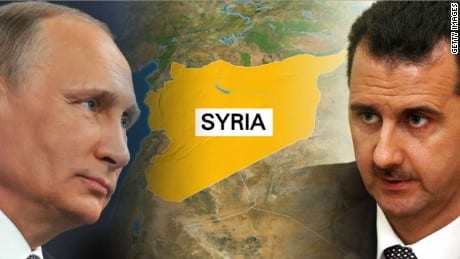
Another attempt of peaceful settlement in Syria once again turned out to be nondurable.
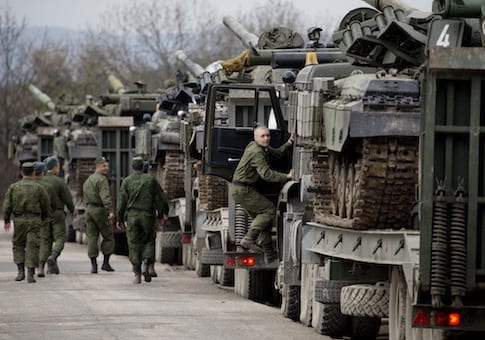
Alarming messages are coming from Russia-Ukrainian common border. Throughout the whole perimeter of the

The international influence of China has skyrocketed recently. This is a global power now

Regular negotiations on Syrian crisis settlement in Geneva will be resumed on the 14th

This autumn Ukrainian government plans to organize and host an international conference of financial
